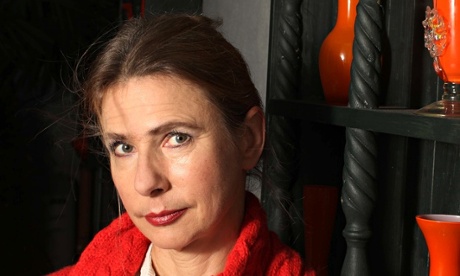
Lionel Shriver has won the BBC national short story award for a story about a near-death experience in a Kenyan river inspired by her own “near-miss” encounters.
Shriver’s Kilifi Creek beat stories by major names including Zadie Smith and Rose Tremain to win the £15,000 prize this evening. It tells of a gap year traveller, Liana, who, while outstaying her welcome with a “teeny-tiny-bit-pretentious photographer and her retired safari-guide husband” when travelling in Kenya, takes a late swim which nearly kills her. Years later, she is reflecting on the experience, and tells the story for the first time.
“‘Usually, when you have a near-miss, it’s an instant. A little flash, like, Wow. That was weird. This one went on forever, or seemed to. I was going to die, floating off on the Indian Ocean until I lost consciousness, or I wasn’t. It was a long time to be in this … in-between state’,” says Liana in the story, which was first published in the New Yorker. “‘I don’t know, don’t make me embarrassed. I’ve no idea what I’m trying to say.’”
Shriver said that she had her own “little collection in my head of the occasions on which I almost died”. Some of these occurrences “are dramatic, but in others, to an observer, nothing would have occurred. For these are experiences of what didn’t happen,” said Shriver. “But I have a keen sense of the ‘counterfactual’, as one critic observed, which is only by way of saying I have some imagination, some appreciation for how at numerous junctures I might have veered in a different — in some cases, fatal — direction.”
The author, who has been shortlisted for the award twice before, said that “what makes the near-miss catalogue so haunting is awareness that at some point, as the text observes, ‘there is no almost’. So when I read a story in the NY Times about a young woman who plunged to her death in Manhattan, just because a railing of her apartment balcony came loose, I was moved to write Kilifi Creek. That young woman emblemized the ‘no almost’.”
The BBC award described Kilifi Creek as “wry, witty and understated”, calling it “a masterly meditation on how we react to what life might have in store for us”. Chair of judges Alan Yentob, the BBC’s creative director, said it stood out from a fantastic shortlist “as a wonderful evocation of life in miniature, crossing continents and generations”. He calles Shriver “a worthy and deserved winner” who “proves that short really is sweet and it’s never been sweeter than now”.
His fellow judge Laura Dockrill, the writer and performer, said Shriver’s creation Liana “was one of the strongest characters I’ve read in a long time … The story was so good we felt it should have been a novel,” she said. “Its only failing we could think of was that we wanted more of her.”
The author of 11 novels, including We Need to Talk About Kevin, Shriver said she loved the short story format because it “doesn’t consume a couple of years” in the writing. “Ironically, low temporal risk can facilitate high-risk style and content. In a short story, you can try anything,” she said.
Zadie Smith’s story, Miss Adele Amidst the Corsets, was named runner-up at the award ceremony in the BBC’s Radio theatre in London on 30 September. All five shortlisted stories, read by actors including Carey Mulligan and Rebecca Hall, can be listened to at the BBC for a short period.

